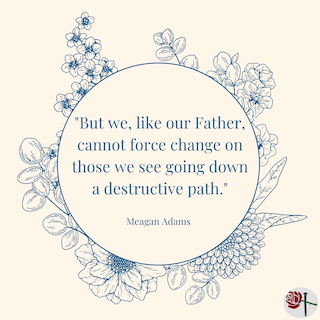 Written by Meagan Adams, volunteer with Iron Rose Sister Ministries in McRae, Arkansas
Written by Meagan Adams, volunteer with Iron Rose Sister Ministries in McRae, Arkansas
Some relationships are easy; some are hard. The pandemic exposed many conflicts that were seething under the surface. We’ve divided into “us” versus “them” camps on so many levels. Does anyone else feel that were experiencing another Babel, where we don’t even speak the same language? I felt the relationship challenges most keenly when our adult daughter moved home last fall. After being out of work for nearly a year due to the pandemic, her savings were depleted. We offered her our house to live in. “Not to worry,” said we, “we’re going back to Greece in a couple of weeks and you’ll have the house to yourself.” Virus variants developed, countries experienced new waves of cases, regulations and travel options continually changed. Somehow, a couple of weeks turned into three months.
It’s never easy when an adult child moves home. It’s especially challenging when that adult child has developed a world view vastly different from your own. Every conversation turned into a debate, and I found myself afraid to open my mouth because I felt like I didn’t even speak the same language. I spent a lot of time praying, asking for new ways to relate. I’m still waiting for an epiphany. Things improved, but the relationship challenge is still there – which is not necessarily a bad thing. You see, when our daughter lived away it became easy not to engage at all beyond the surface level. Living together, this was not possible. Even if it’s not easier, the relationship is better because something is actually going on.
I recently thought of a parable in which Jesus uses a family in conflict to relate a spiritual truth. Luke 15: 11-32 tells the story that we commonly call “The Prodigal Son.” Ultimately, it’s about God’s redemption of all people, even those that might be considered unworthy, but we can learn some lessons about family in the story as well. A man has two sons – the easy kid and the hard kid (I’m paraphrasing here). When the “hard kid” asks for his inheritance early, I’m sure the father knew he wasn’t really ready for it. He also knew his son well enough to realize that deterring him would be counterproductive. And so, he let him go. The danger was real; I’m sure we all know stories of prodigals who never returned.
But we, like our Father, cannot force change on those we see going down a destructive path. The change must come from within. We wait, we love, and we watch, as the father in the parable does. Luke’s story has a happy middle when the younger son returns home. Relationship is restored. But, alas, joy is cut short. The older son, the “easy kid,” is resentful. Will the older son get over it? Will his resentment continue to fester? The story ends with this issue still hanging. The father is back to the waiting game. He tells him, “Son, you are always with me, and all that is mine is yours,” (Luke 15:31, ESV) but he can’t force a change to the older son’s heart. All he can do is wait, and love, and watch for the opportunity to connect again.